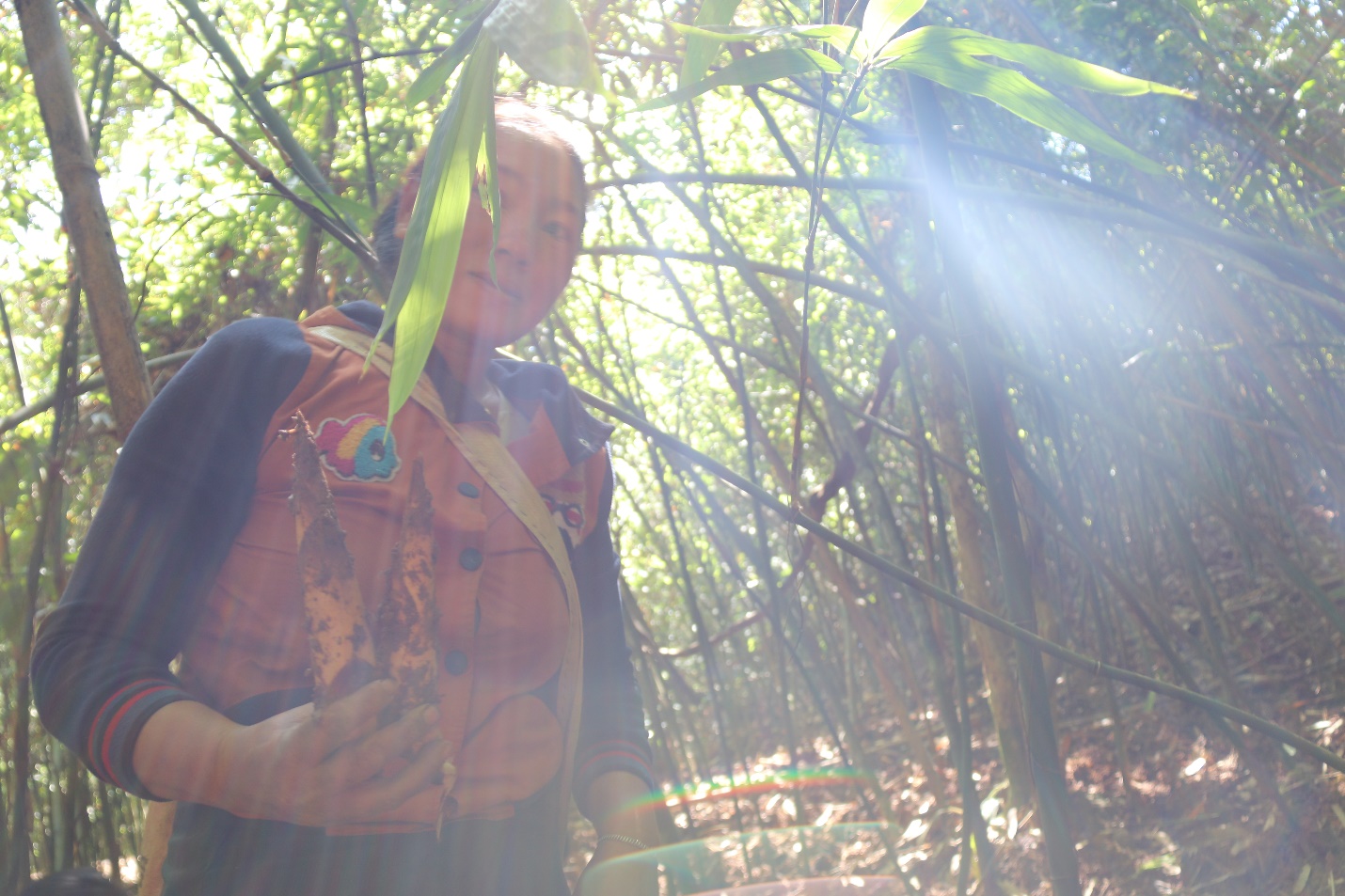Non-timber forest products such as bamboo shoots are a very important food and source of income for farmers in rural areas of Laos. Sustainable management of bamboo is important for food security, and improvement of the bamboo value chain can help increase incomes for rural people. That is why the Lao Farmer Network (LFN), a national farmer platform in the country, is highly interested in capitalizing the experiences of its member, the bitter bamboo group, in managing the forest and marketing their products.
Bitter bamboo is a unique type of bamboo that is available in a few areas in Laos such as Hoaphan and Oudomxay provinces. The shoots are harvested in December to March when they are still underground. Once the shoots have grown above the surface, they start to taste very bitter. So, farmers harvest the shoots while they are still small and underground.
The bitter bamboo group of Nampheng village, Namor district, Oudomxay province has more than a decade of experience in collectively managing their resources as well as marketing bamboo shoots. Through sustainable practices, the forest area has been maintained and villagers are enjoying reliable harvest and incomes.
The group has very strict rules that allow villagers to harvest the shoots only from December to end of March, after which the group declares the close of the forest. The group also bans the use of hoe to avoid damage to the bamboo. Young trees are protected while older trees that are more than 3 years old are allowed to be cut.
In terms of marketing, all villagers have to sell the shoots to the group. The group has a contract with a buyer who gives money upfront. The members get their money right away from the group once the shoots have been delivered to the group. Regarding the trader selection, the group makes the decision based on offers from different buyers. For this year, a trader in the nearest town got the contract because he offers a higher price and also lives near the group.
Regarding the price, the trader gives 5,500 Kip/Kg, the member receives 5,200 Kip/Kg, and the group keeps 300 Kip/Kg for the revolving fund. The fund is used for community work and for credit.
LFN is not only capitalizing this experience, but is actually now helping the group to access markets in Vientiane, the capital city of Laos. The network will support the group to pilot the marketing of 1 ton of shoots to some markets in Vientiane. The price in Vientiane varies from 10,000-15,000 Kip/Kg, three times higher than what villagers are getting now. The process of this piloting will be documented, and the results will be shared in the next couple of months.
The capitalizing activity is funded by AsiaDHRRA while the piloting of the market in Vientiane is funded by LURAS, a Swiss-funded development program. ###
Lao Farmer Network (LFN) is a member of the Asian Farmers’ Association for Sustainable Rural Development (AFA). For more information, contact Phoutthasinh Phimachanh at phoutthasinh.phimmachanh@gmail.com.






Comments are closed